
When considering ABA therapy, the first questions are often about hours, goals, or cost. There is another overlooked factor that may be even more important:
An exemplary case study published in 2020 by Ferguson and colleagues at Autism Partnership Foundation showed just how much of a difference the quality and expertise of therapists can make, especially in complex, high-need cases.
The study followed an 8-year-old girl with ASD who had a long history of severe problem behavior. This includes aggression, elopement, and intense emotional outbursts. She had been removed from her public school due to safety concerns and was often unable to participate in even basic learning activities. Previous treatments, including ABA, had not been successful.
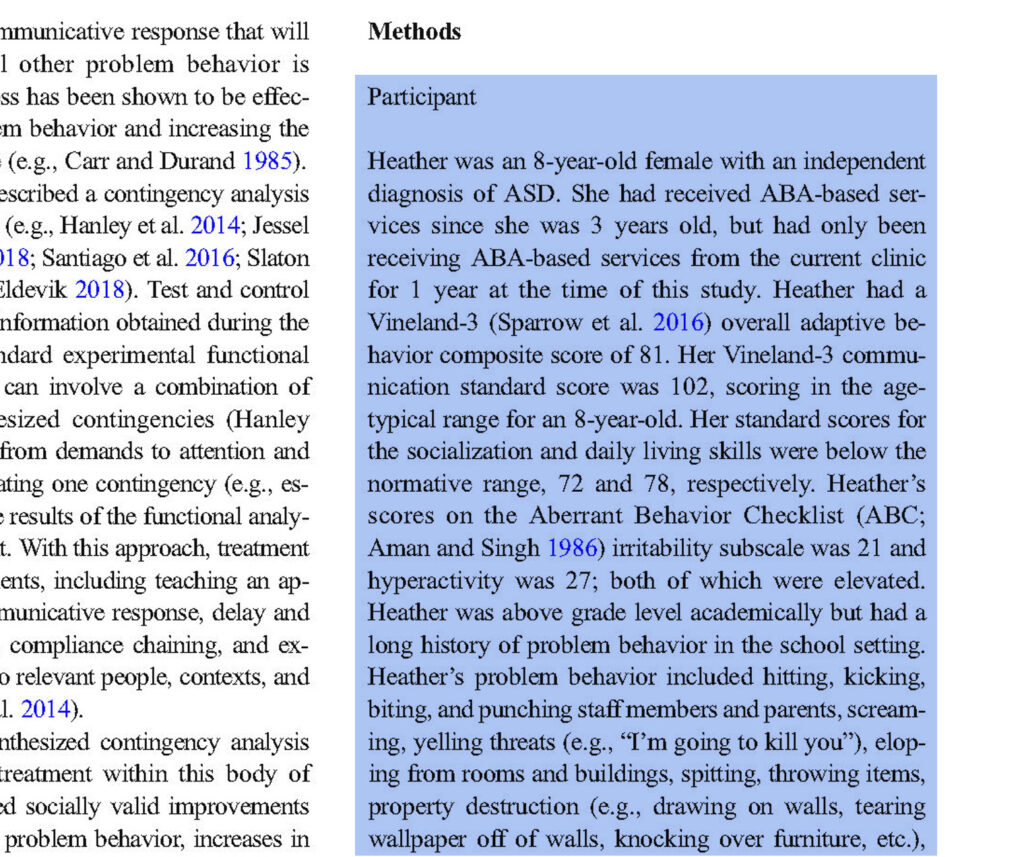
Using a Progressive ABA approach, the research team conducted a detailed functional assessment and implemented a highly individualized skill-based treatment plan. What made this case particularly noteworthy was that all intervention sessions were delivered by Board Certified Behavior Analysts (BCBAs) In most settings, these professionals would serve as supervisors rather than direct therapists.
The results were fantastic. Severe problem behavior decreased to near-zero levels across all settings (clinic, home, and school). The girl began using functional communication to express her needs. She learned to tolerate denied access, follow multi-step instructions, and engage positively with adults. Eventually, she was successfully reintegrated into a mainstream public-school classroom.
Just as importantly, her parents reported significantly reduced stress and increased confidence in their ability to support her.
This was not a small win. This was a life-changing transformation for the child and her entire family.
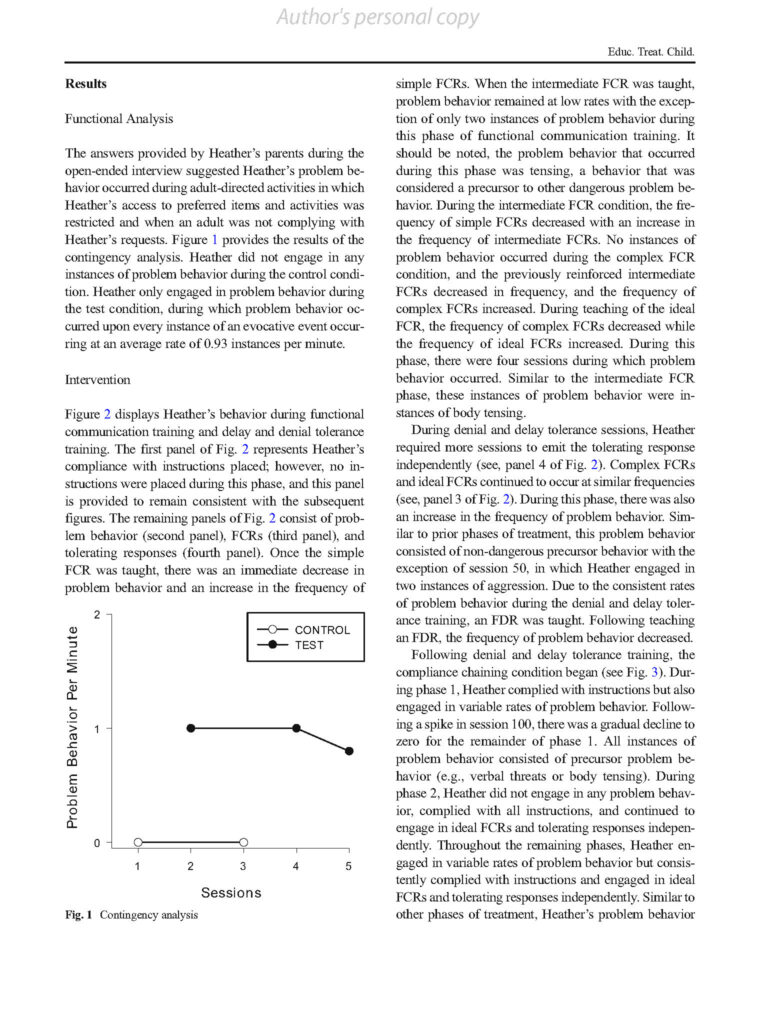
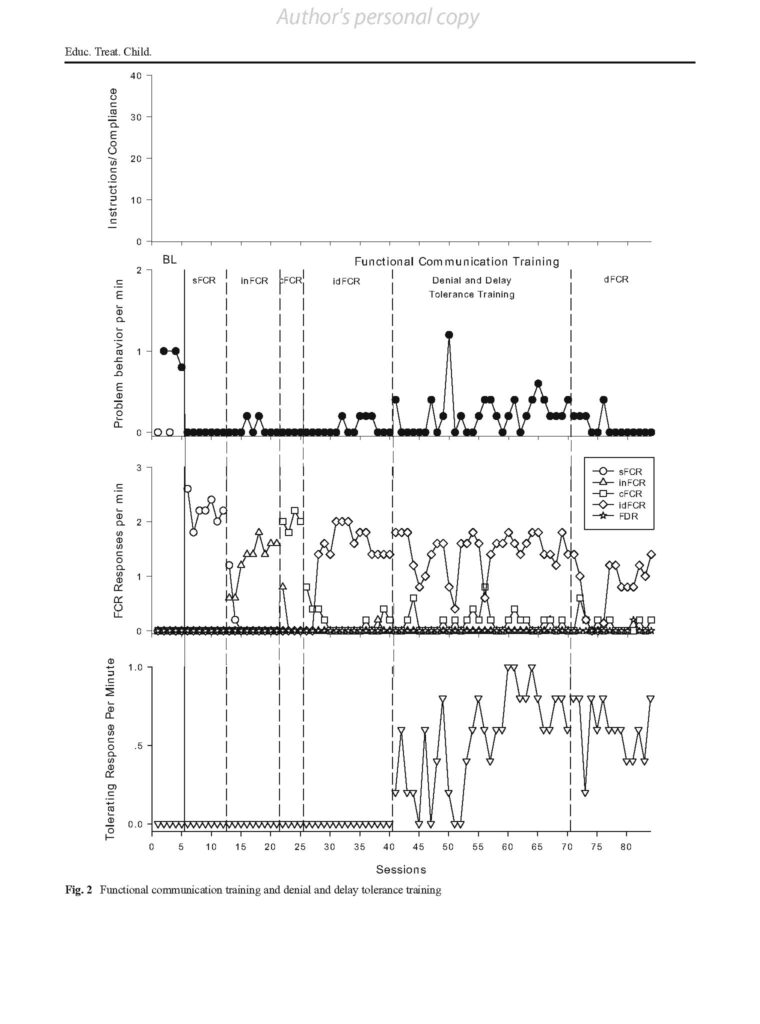
The key factor was therapist quality.
While many ABA programs rely heavily on entry-level technicians with minimal training (sometimes as little as 40 hours of online instruction), this case demonstrated what is possible when therapy is delivered by highly trained, experienced professionals using Progressive ABA strategies.
These BCBAs used in-the-moment clinical judgment to adapt their approach and built strong rapport with the child. They did this while being focused on meaningful and functional skills, not just compliance. Additionally, they maintained flexibility throughout treatment, rather than sticking to rigid protocols
In short, they knew what they were doing, and it showed.
This case is a clear reminder: ABA is only as good as the people delivering it.
When choosing an ABA provider, do not just ask how many hours your child will receive. Ask who will be working directly with your child? What kind of training do they have? Do they use a Progressive ABA model? Is treatment individualized, flexible, and based on functional assessment?
At Autism Partnership, we hold ourselves to the highest standards. We invest heavily in training, supervision, and the ongoing development of our clinical team to ensure that every child receives the most effective, compassionate care possible.
ABA is not magic. But when done right and by the right people, it can produce extraordinary results.
If your child is facing complex challenges or hasn’t made the progress you hoped for in other programs, do not give up hope. Sometimes, the missing ingredient is not effort or time. It is expertise.
Ferguson, J.L., Saini, V., Leaf, J.B., Cihon, J.H., McEachin, J., & Leaf, R. (2020). A case study: A preliminary evaluation of practical functional assessment and skill-based treatment in a public-school setting with a child with autism.
Dr. David Fischer received a doctoral degree in Clinical Psychology from Rutgers University, USA, advised by Dr. Sandra Harris. Since 1999, he was worked in the field of Applied Behavior Analysis and with individuals diagnosed with a developmental disability. He completed his pre-doctoral internship and post-doctoral fellowship at the Marcus Institute in Atlanta, Georgia working in the severe behavior unit, short-term-out-patient clinic, feeding disorders unit, and early intervention clinic. From 2007 – 2011, he trained public school teachers to instruct and manage the behavior of their students diagnosed with Autism spectrum disorder. He also was the clinical coordinator of the Asperger’s College Program, which provides support services to Rutgers students diagnosed with Asperger’s Disorder.
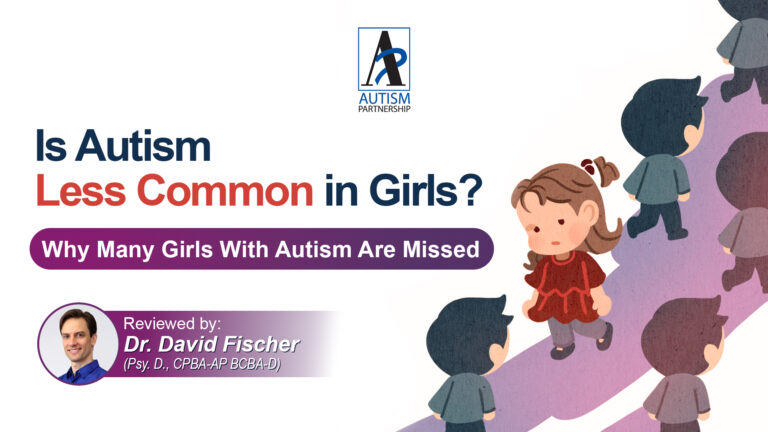
Is autism really less common in girls than boys? Should parents feel more relieved if they have a daughter? Why Fewer Girls Are Diagnosed With Autism Autism Diagnosis in Boys and Girls: What the Data Shows How Autism Often Presents Differently in Girls – Social Motivation, Language, and Behaviour Other Common Traits Seen in Girls […]

When most parents start ABA therapy for their child, they are thinking about immediate concerns: communication, behavior, independence, or school readiness. However, there is another important factor to consider and that is your child’s future as an adult. A recent UK government report, The Buckland Review of Autism Employment (2024), sheds light on a troubling reality. […]
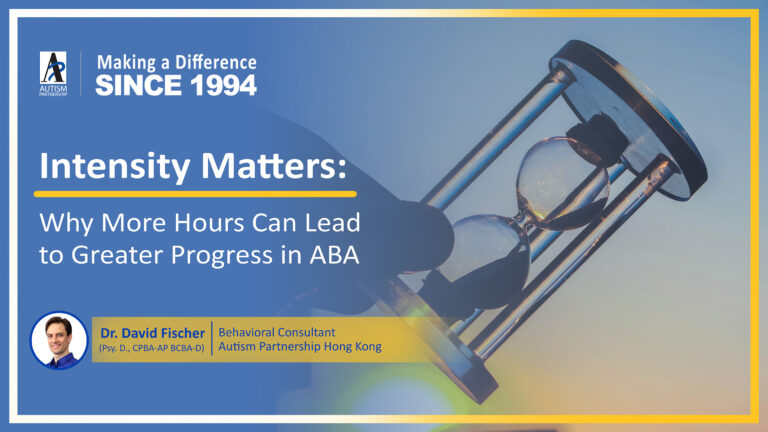
When considering ABA therapy for a child with autism, parents often ask: “How many hours should my child receive?” It’s an important question, and the answer can make a substantial difference. While every child is unique, decades of research has shown the intensity of therapy matters. A major study published in 2017 by Linstead and […]
Please share to let more people learn about ASD and ABA therapy:


.
All information received will always remain confidential. We will contact you as soon as we review your message. Thanks